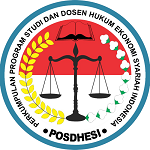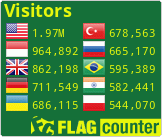Ekonomi Global Perspektif Konsep Maqashid Syariah Imam Al-Syatibi
DOI:
https://doi.org/10.32332/muamalah.v2i1.7022Keywords:
Maqashid Syariah, Global Economy, maslahahAbstract
This study discusses the urgency of the Global Economy in dealing with the progress of the times which is reviewed based on the principles of Islamic law, namely the orientation of benefit through a review of the Maqashid Syariah concept formulated by Imam Al-Syatibi. This study uses library research methods based on library sources in the form of literature and previous research that has relevance to the topic of global economic discussion which is then reviewed for urgency through the perspective of Maqashid Syariah. The results of the study show that the urgency of the presence of the global economy in people's lives is needed to then support the economy of every country that follows the pace of development by utilizing technological and scientific advances, which are included in the second level of maslahah, namely mashlahah hajiyah which is in the realm of protecting the five elements. The main point of human life is the safety of religion, soul, mind, lineage, and property, considering that the economic aspect is a fairly vital aspect in human life from any part of the country, which if not realized and able to adapt properly, may have an impact on the five basic elements of human life. So that through the presence of a global economy that provides convenience and is a mashlahah that supports the realization and fulfillment of the needs of the five basic elements of human life.
Downloads
References
Downloads
Published
Issue
Section
License
Copyright (c) 2023 UMMU FAUZIYYAH SYAFRUDDIN

This work is licensed under a Creative Commons Attribution-ShareAlike 4.0 International License.
All articles in the Mu'amalah: Jurnal Hukum Ekonomi Syariah can be disseminated on condition that they still include the identity of the article and the source (Mu'amalah). The publisher is not responsible for the contents of the article. The content of the article is the sole responsibility of the author.
Authors who publish this subject agree to the following terms:
First, the Authors retain copyright and grant the journal rights from the first publication with the work simultaneously licensed under a Creative Commons Attribution-ShareAlike 4.0 International License that allows others to share the work with an acknowledgement of the work's authorship and initial publication in this journal.
Secondly, the authors can enter into a separate or an acknowledgement of its initial (e.g., post-institutional repository or publish it in a book) publication in this journal.
![]()
Third, the authors are permitted and encouraged to post their work online (e.g., in institutional repositories or on their website) before publishing work is cited.








